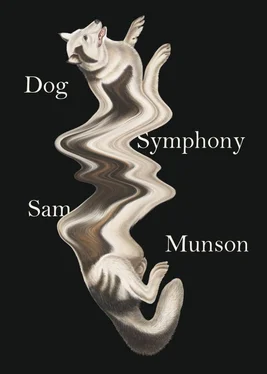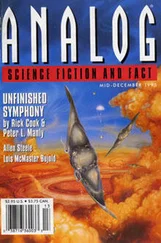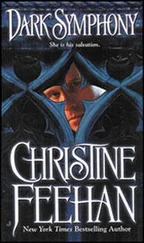La Boca, The Mouth. Every tourist knows the name of that barrio, Pasternak. It’s famous throughout the world. I ordinarily would never have visited such a place. On my travels I preferred to find the truly anonymous, truly empty zones of a city. I was never perfectly successful, and this trip had occasioned many hindrances. La Boca was home to the Boca Juniors, a soccer team. Soccer is another prison, in which the wardens and guards outnumber the inmates by a thousand or ten thousand to one. And while Caminito was crowded, and while the houses as I walked south displayed colors (red, orange, yellow, pink) corrupted by the endless viewing. This complexion did not last. The Riachuelo, dull and metallic, visually impure, flowed alongside me as I crossed Alfredo Palacios, a street named after an Argentine senator. The first socialist, if memory serves, in the Chamber of Deputies. A man with an imitative mustache meant to suggest some Russian exploder. His name repeated now by blue, silent plaques among sheds with corrugated aluminum sides that filled most of the street lots here, among the shrill metallic cries of saws or drill presses. The smell of the river poured lazily through the silent air between the sheds. I looked into the few stores that I passed. One sold only hubcaps, another orthotic shoes, the walls of a third glittered telegraphically with key blanks. The Dog Symphony trembled and trilled from a radio in the orthotic shoe store. All three, of course, had meat bowls set out. All six bowls were empty. The key-store owners had housed theirs under a wooden roof cut from a lemon crate (you could see the painted, ruined lemons) and shingled with oxidized keys.
I found Parker quite quickly, or Avenida Zenz, as it was now known. Its new nameplate was smaller than the old one, and a whitish penumbra surrounded it against the dirtied brick wall. The city had shown Zenz a great dishonor in naming this street after him. I didn’t know the man’s work, of course; I’ve never had time for contemporary literature. But even so: Parker (or Zenz) was one block long. This was why, I assumed, it had been chosen. So that minimal damage would be done to existent atlases. Atlases, census records, subway maps — all these the great city values more than a dead or dying writer. Notwithstanding the shit-flecked fan dances porteños perform if Borges or Cortázar enters the conversation. Zenz (or Parker) ran from Coronel Salvadores to California; I was standing at the California end, staring along the street into a barren triangular field on Salvadores. The little street was silent, sentried by one lone leafless poplar. The Riachuelo’s hard glints fired whenever I looked east and south, beyond the thrumming sheds that separated Zenz from the concrete shingle and the water. Above me a vapid sky in which geese honked as they flapped.
I had trouble locating 4300. A building that occupied an entire city block filled the northeast side of Zenz corner to corner. The largest shed I’d yet seen. A monstrous building clad in curd-colored aluminum siding. It looked as I had always imagined the exterior of the Labyrinth to look, but buildings that recall the Labyrinth have become sadly common in all cities. Near its roofline, a blue scrawl of graffiti said: YOUR MOTHER FUCKS NIGHT DOGS. The hand neat and sure, like the hand of a copyist, an eighteenth-century expert flowing on and on through the constellations. I circumnavigated the building, all four sides, thinking it might be 4300. I saw no entry door, no windows, just the blank siding through which came a mild, mechanical hum. Eight bowls, two to a side. Nothing exceptional there. I rested my forehead against the metal — the absence of other pedestrians stripped me of shame — and the vibrations soothed me. My eyelids began to fall. But this strange building was obviously not 4300, so I had to abandon my soothing, subterranean phenomenon.
On Zenz’s southwest side spread a low, dark structure: an octagonal one-story building with a hooked annex encircling its parking lot. This lay behind a massive, rusted fence. A row of blue vans gleamed in the lot, more or less like blue molars. Or the late-afternoon light itself might have possessed this dental quality. I don’t know, our lives are governed to a certain extent by dental mysteries far more than religious mysteries. But in any case I crossed and surveyed. I was sure that this barracks-like structure would also fail to be what I wanted, that the departmental operator had played an easy, cruel prank on me, but as I approached I saw that the low building was indeed 4300 Zenz. The name spelled out in umber letters beneath the ragged awning was OJEA MEAT DISTRIBUTORS. I saw no sign of life within. The side windows were small and high up like portholes, filthy and covered with metal netting. An empty desk was visible through the dead window in the steel front door; a toy Argentine flag dangled stiffly from its black dowel planted in a pot clearly meant to hold silk flowers. I pressed the button next to this steel door. The buzzer shrilled within, but nothing else happened. The meat and water bowls left here seemed to be hammered from the same dead, crude metal as the door. The blue vans in the lot, parked obliquely, displayed the words MAN’S BEST FRIEND SOCIETY in a dizzying array. Orthodontic. Or heterodontic. My blood thudded at my temples. The silence of the street magnified this drumbeat. Another wedge of geese bumbled east above me. The sun and moon occupied the sky at the same time. The pitted fence abraded my fingers as I laced them through its links. All the preconditions for a “literary” occurrence manifested themselves, and a sick, viscous elation was curdling in my bowels.
The octagonal building had another door, also of grayish steel, set into its western arm. A door meant to give workers access, I imagined, to these dental, echoing vans. This door opened and a fat, hairy-shouldered man in a white undershirt stepped through, his boot treads creaking against the asphalt of the lot. As the door closed behind him I saw, or imagined I saw, sky-blue cloth, banners or uniforms. The fat man didn’t see me at first. His cigarette lighter failed and he had to resort to matches. Clusters of brown, faint stains speckled his undershirt. Fresher red streaks painted his wide forearms. From the Ojea building, as from the metal sheds in its vicinity, metal whines and cries drifted, treble and sustained. The fat man paced without seeing me, slapped the flank of the lead van in fraternal affection, scratched his balls. In short, a fellow primate. I called out to him: Sir, sir. He ignored me. Or the noise from the Ojea building obscured my words. But eventually, after repeated calls, he stared at me, one hand on the truck side, his cigarette in the other, an image fit only to be smeared with the effluvium of artistic photography, in fact, especially because more geese had appeared and their crooked, tender shadows were touching the asphalt. I waited, I called out again, and the fat man approached without speaking. The blood drying on his skin carried a raw smell. He stared at me through the fence, stared without speaking when the name Mariategui made its appearance, stared and stared. I asked again: Sir, do you know Dr. Mariategui, Ana Mariategui? A colleague of yours? A supervisor? I was given this address by the Department of Social Praxis.
The fat man spat through the chain-link with astonishing precision. The sputum traveled over my shoulder but passed close enough to my face to cause me to leap back. Then he apologized, but a crooked and even ashamed grin twisted and crushed his apology. I did not mean to do that, spit so close, but I have to spit constantly, it’s an affliction, said the fat man. He spat again. Who knows if it was genuine spit and a genuine affliction or a theatrical proof of his previous statement? I asked him if he knew anything, anything at all about Dr. Mariategui, I said once more I’d been given this address by the Department of Social Praxis. You work there, he wanted to know. I told him no. You don’t look like it but I thought I’d ask, he went on. He spat a third time, between his own feet. I don’t know that name, he said, and I don’t know why the University sent you here. We’re a meat packaging company, as I’m sure you figured out. He grinned his broken-spined grin once more, and I saw that fading bruises, faint and greenish, mottled his face and bare arms. Please, I said, I must know, so if you’re fucking with me please stop. My own profanity surprised me.
Читать дальше












